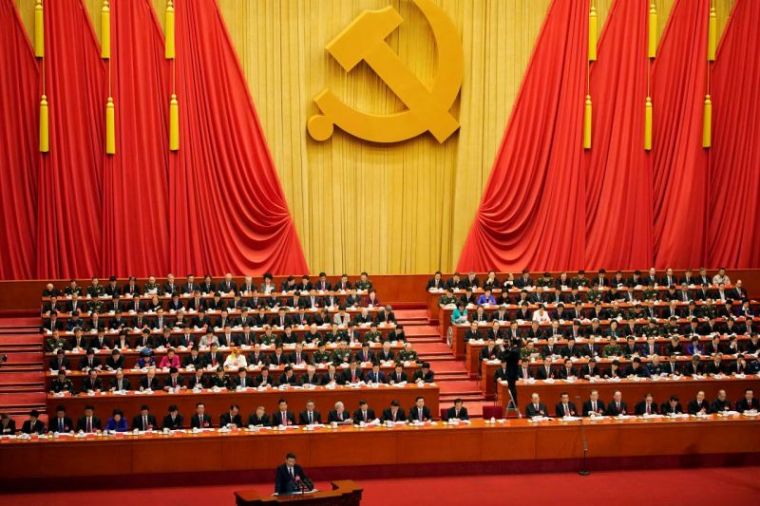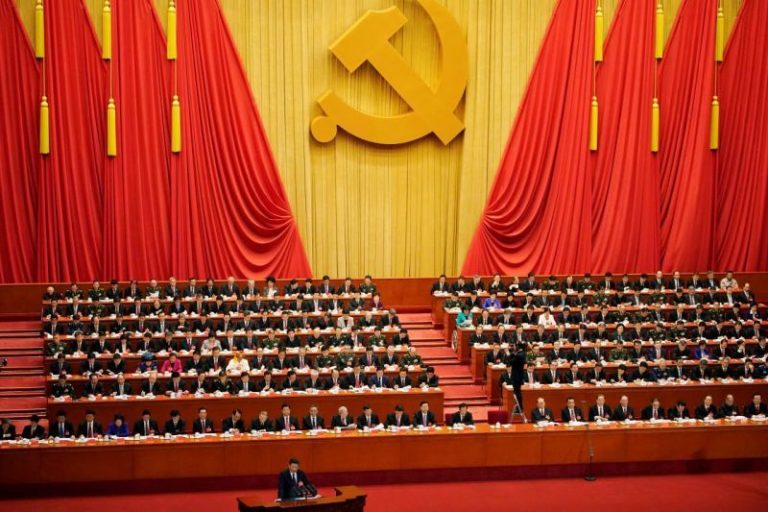
The level of control imposed on Christians by the Chinese government continues to grow, particularly over children.
Since 2015, Chinese President Xi Jinping has implemented a campaign framework called “Sinicization” to govern religious affairs in China. Under this movement, the country’s religions must have Chinese characteristics and adapt to China’s socialist society.
Beijing is particularly tightening its religious restrictions on minors, aiming to ensure that future generations are ideologically indoctrinated to listen to and follow the Chinese Communist Party (CCP).
A pastor who founded a house church in the coastal area of southeastern China recently shared with Global Christian Relief the strategy employed by the Chinese government to strictly control miners, which it calls “the pharaoh policy”. Just as Pharaoh targeted the children of the Israelites in Exodus 1, Beijing’s tactics highlight its determination to eliminate opportunities for young people to learn about God.
“The overall situation (in China) is difficult for house church Christians. Nowadays it is easier (for the government) to brainwash Christians,” the pastor said. “Systemic repression has been imposed on the next generation. The goal is to reduce the growth of the next generation, so that there will be fewer Christians in the future. »
Chinese children have not been allowed to attend religious services or participate in religious activities since 2017.
Before Xi came to power, children under former President Hu Jintao were allowed to attend Sunday school. Today, under Xi, many parents of kindergarten and middle school students must sign and submit a “pledge not to believe in religion” to their children’s teachers.
Government staff are monitoring to ensure that no children enter places of worship. The protests of parents who say they cannot leave their children alone at home go unheeded. To get around these restrictions, many churches secretly hold Sunday school in their members’ homes.
Homeschooling has gained popularity among Chinese Christian families in recent years. Many families banded together to organize home schools to avoid the CCP’s political indoctrination. The number of students in a home school typically ranges from 10 to 50, with some serving up to 100 children.
The presence of these home schools has attracted unwanted attention from local authorities. In cities like Hangzhou, Qingdao and Guiyang, many home schools have been closed. In Wenzhou, five Christians were arrested and sentenced to 20 days of detention. For more than a year, a director was placed under residential surveillance in a “designated location,” a form of secret detention used to target and punish individuals.
To further deter Christians from starting home schools, authorities imposed fines ranging from $98,000 to a staggering $838,500. School leaders refuse to accept unreasonable sanctions aimed at delegitimizing government actions.
Faced with these challenges, many Christian parents have no choice but to send their children abroad to continue their education. Those who cannot afford this option continue their homeschooling in secret, believing that an education based on biblical principles, coupled with homeschooling cooperatives with other Christians, is vital to the education of their children.
Christian students also face increased repression on college campuses. In the past, church-run college scholarships were common at universities. But starting in 2014, many churches were forced to post signs reading, “Minors and students are not allowed to participate in religious activities,” leading to a shutdown of campus activities. .
Christian university students are prohibited from proselytizing to classmates on campus and risk being reported to authorities for doing so. Community leaders are the target of threats and surveillance. Christian teachers are also not allowed to share the gospel with their students.
The harsh crackdown on seminaries associated with unregistered churches is another indication of Beijing’s desire to reign in religious education. In the cities of Chengdu and Xuzhou, several seminaries were raided by police and their leaders arrested for questioning. In 2022, two Bible institutes in Wenzhou were labeled “illegal social organizations” by a civil affairs bureau and dissolved.
Historically, Chinese Christians went to Hong Kong to attend a seminar or to meet believers there. After the 2019 pro-democracy movement, Beijing became wary of the region’s influence on Chinese citizens. Chinese Christian leaders who visit Hong Kong face questioning upon their return. Studying in seminaries is now more precarious for Christians seeking to flee the continent.
Hong Kong, like the rest of China, is no longer a haven for Christian education.
CJ Wu is a writer for Global Christian Relief (GCR), the leading U.S. watchdog organization focused on the plight of persecuted Christians around the world. In addition to equipping the Western Church to defend and pray for the persecuted, GCR works in the most restrictive countries to protect and encourage Christians threatened by faith-based discrimination and violence.
Free Religious Freedom Updates
Join thousands of others to get the FREEDOM POST free newsletter, sent twice a week from The Christian Post.


